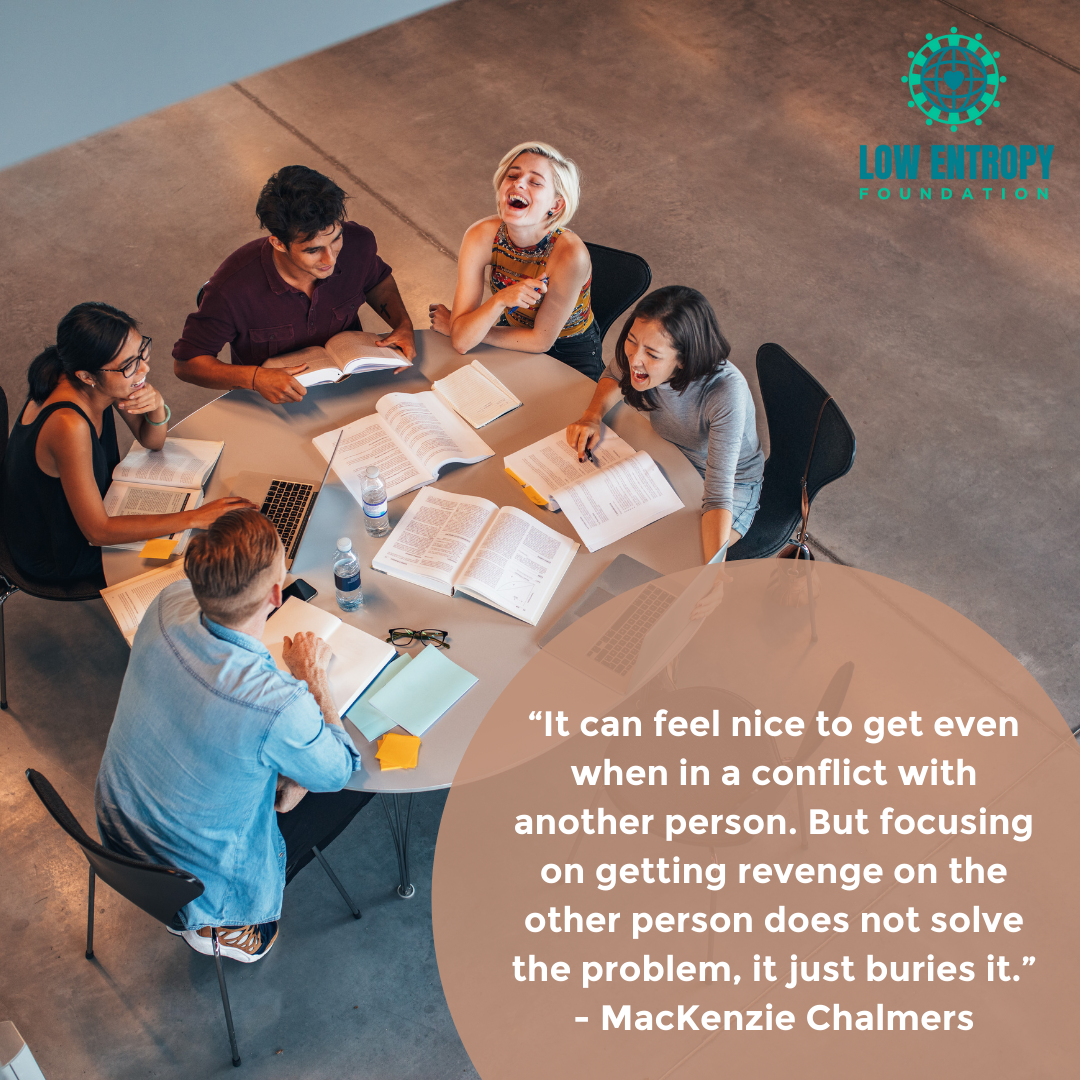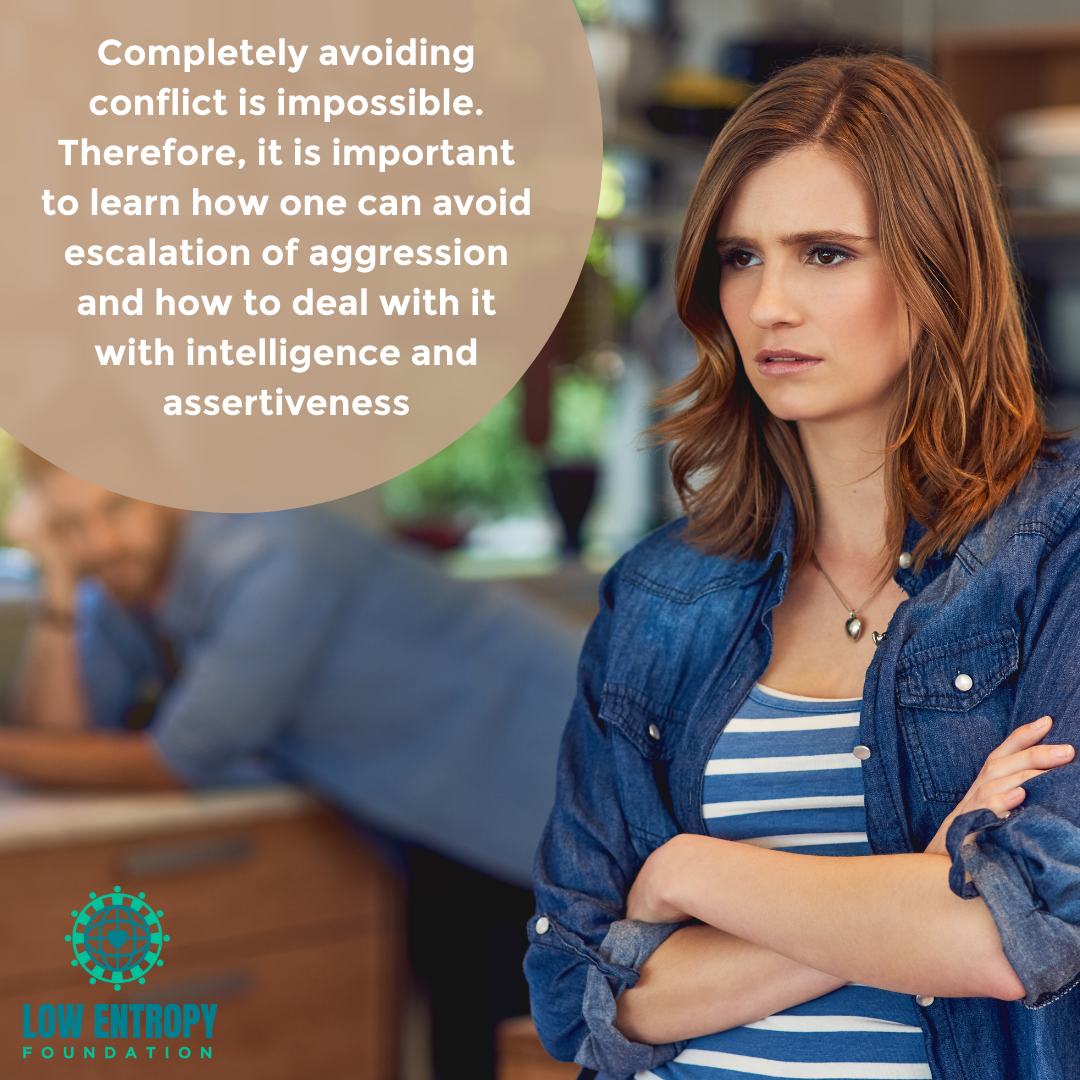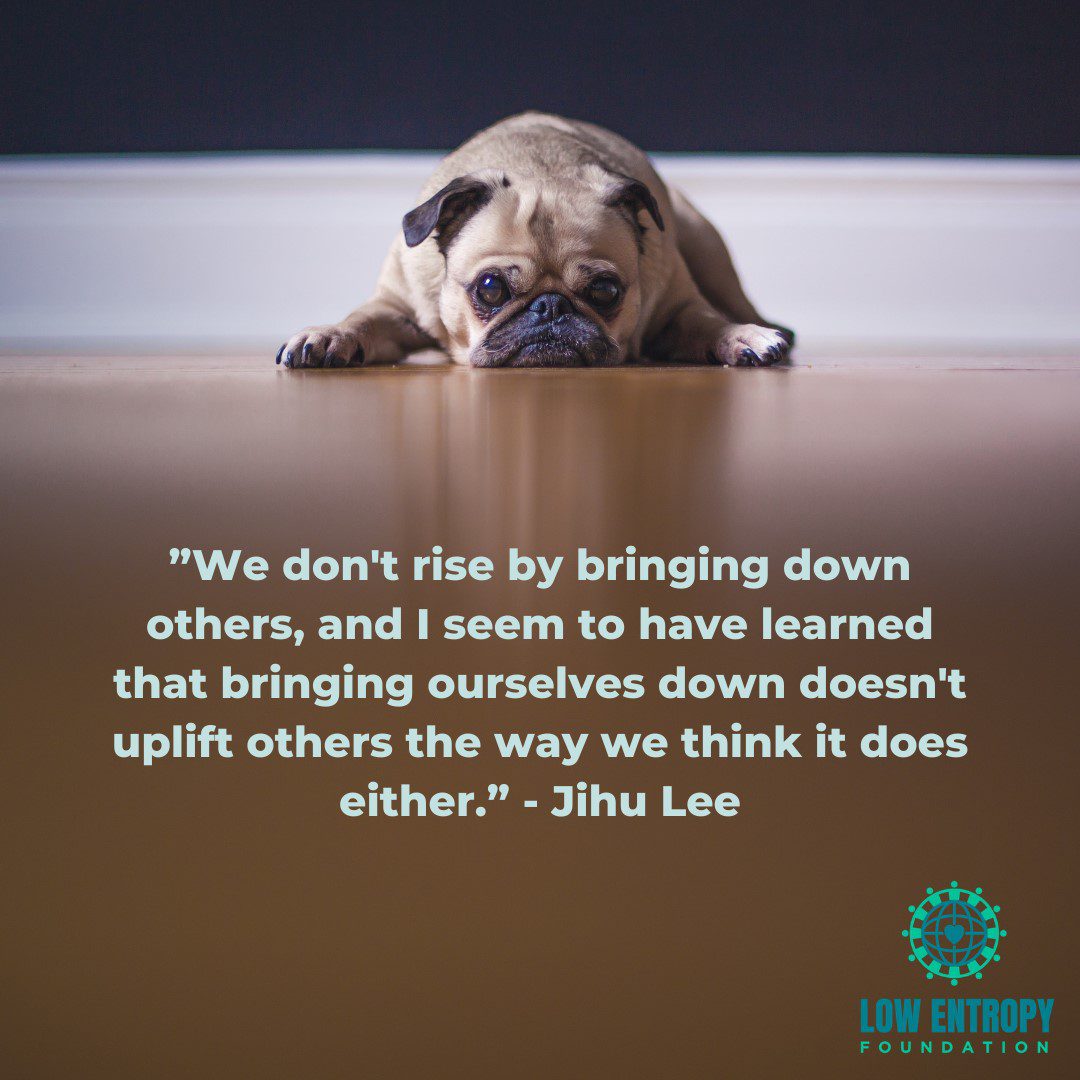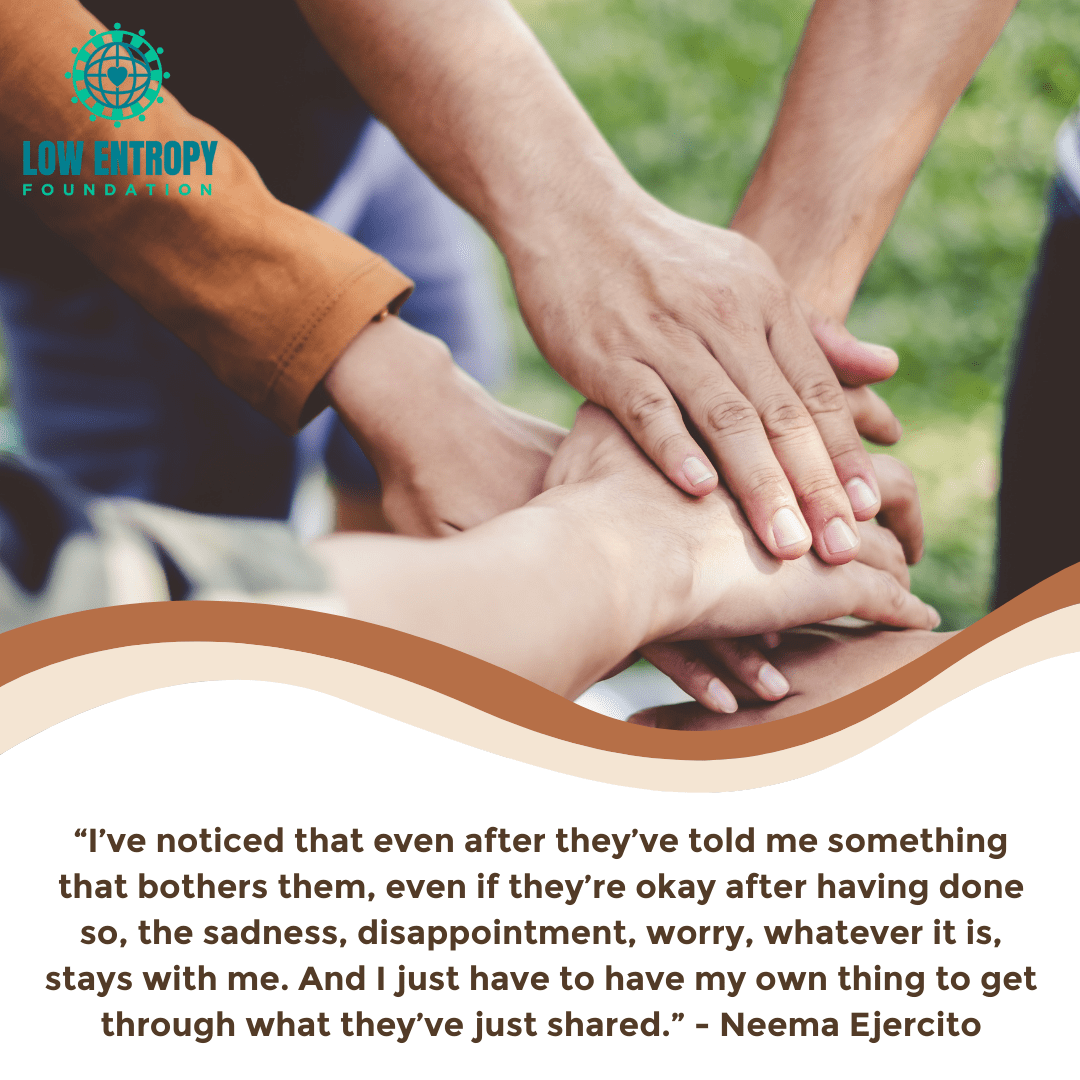That Will Teach You
April 3, 2022

MacKenzie Chalmers (she/her/hers), Low Entropy Volunteer Writer
Everyone deals with conflict at some point in their life. Conflict with friends, family, co-workers, or classmates — it can occur in any situation and with any individual. We have disagreements or arguments with others and have to figure out how to solve them. I have been in several situations of conflict, but often found a way to resolve it. However, there was a case where I found myself in a situation where I got even with the other person — it was not planned, but the opportunity presented itself and I took it.
It was my first year of college. Group assignments had not been too common within the first year, but unfortunately I was not able to escape them entirely. We were placed within a group that was pre-chosen by the professor — another unfortunate factor of group assignments, as we are not familiar with the work habits of people we do not know. Each group was given another program in the school, and we had to advertise that program. We were required to communicate with the head professor for each program and organize a time to conduct a meeting with them, and to come to different classes to get the photos to go onto the advertising poster. Once that was done, we were required to do a presentation to the class.
The ideal group dynamic should have been a group chat with all of us in it, so that we could engage with one another. We should have decided as a group the type of photos we wanted to include in the assignment and split up the images so that we did not take similar photos. We should have decided together how our presentation slide show would go and the pieces of information each group member would provide to the class.
In my situation, that did not happen. I took on the role of leader in the group. I was the one to maintain contact with the assigned professor, as well as the professors for the classes we needed to take photos in. I had to contact each group member individually and relay information to each of them, as they did not want to meet up or have a group chat. I had members cancel on me when scheduled to take photos for the assignment, leaving me to go alone to the classes. I had a group member take photos that were not completely related to the assigned program. Another member stopped responding to messages, and it took myself and a friend of his who was in another group to get him to send me his photos. The third group member prioritized gaming rather than taking a few minutes to send me his photos, despite the fact it was the night before the presentation.
The morning of the presentation, I got the work from my last group member and discovered that the other two were not showing up to the presentation. I went into the presentation frustrated. I am the type to have my work done days before and not minutes before. Looking at the slideshow, I discovered the group member’s photos that I received that morning looked similar in content to mine, and decided to make him go first. Logically, it made sense for him to speak first, since I knew more of the material and was covering my part and the two parts of my group members. It made sense, but I also had a feeling of satisfaction knowing that the other student was not as informed of the details of the assigned program as I was — which was not my fault, as he had a responsibility to make an effort in the group assignment. He did not know the basic details of the program, despite the fact he had come with me to the first meeting with the professor and I sent a detailed email to everyone about that meeting. He provided little detail and quickly finished so I could start speaking.
It felt satisfying because the entire class and our professor witnessed the lack of information he knew. It became evident when I began speaking that everyone could hear the confidence in my voice as I relayed the information to the class without hesitation. During question time, the class directly asked me the questions about the program and barely looked at him. I felt like I got even because he was required to speak and proved that he did not do much work, sort of embarrassing himself — at least, I would have been embarrassed if I did not know the information and it was clear to everyone else.
Overall, I got even with one of my group members. Did it make me feel better? Did it solve the conflict? Yes and no.
My decision to make him speak first, knowing he did not know as much information as me, made it known to the class that I did more work than he did and put more effort into the assignment. However, it did not solve the conflict or make me feel better afterwards. I felt the brief satisfaction of having everyone know I did the work and he did not, but it was out of my nature to act in that manner. I am the person to help someone out when they are struggling, but I did not jump to help him when he was clearly not aware of the information. I think my frustration at each member took over, being the main organizer and not receiving help with a component as simple as putting a slideshow together. Additionally, it did not solve the conflict. We were receiving individual marks for the assignment. Regardless of the struggles, each member did take their own photos, allowing them to earn a mark for that, and only losing some for not showing up to the presentation.
I got even, but the conflict was not solved. The professor was not aware of the conflict occurring, due to the lack of participation from the rest of my group members. He was not aware that I did all of the planning and preparation myself, nor of the effort I put into the assignment. If I had communicated the conflict with him, then I could have resolved the conflict or at least improved the situation. It can feel nice to get even when in a conflict with another person. But focusing on getting revenge on the other person does not solve the problem, it just buries it.
—
MacKenzie is a digital media enthusiast with interests in various aspects of media. She takes part in novel hunting, photo and video creating, and creative writing.
GET INVOLVED
At Low Entropy, we believe changing the world starts with changing ourselves.
Founded in 2015, Low Entropy Facilitates conversations that encourage diversity and promote inclusivity.
We understand that life can be confusing at times. It can seem challenging and sometimes you may feel like no one really “gets you.” We offer an opportunity to connect with others who have the capacity to understand you.









